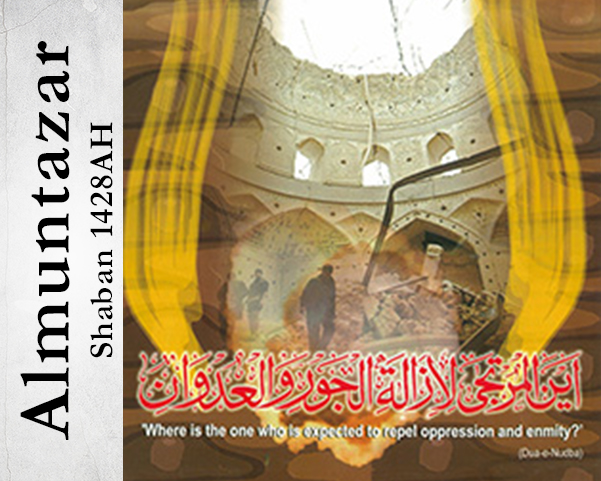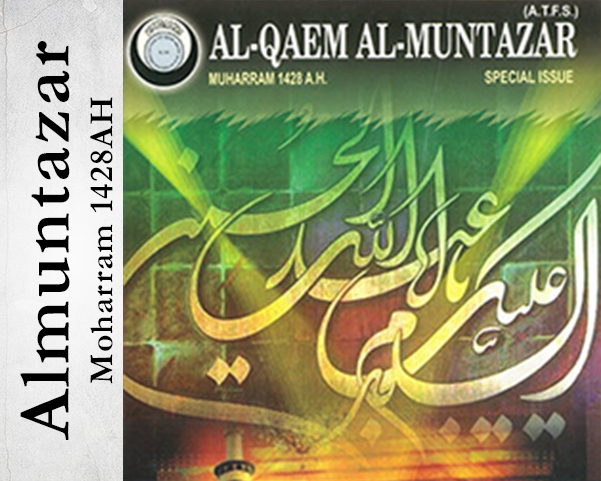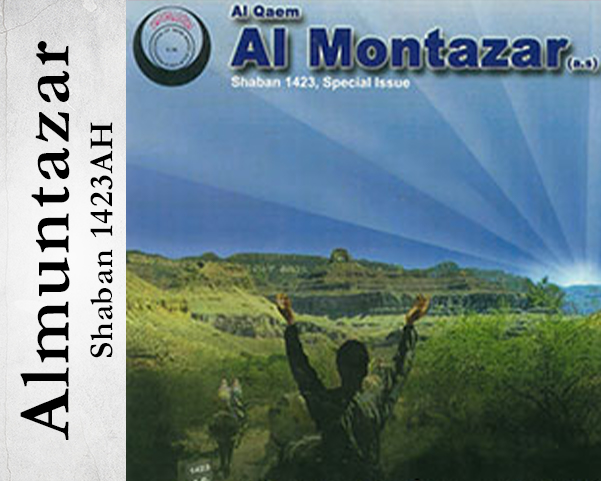Allah the Almighty says in the Holy Quran,
“Surely We have shown him the way. Then he can either be grateful or ungrateful”
(Surah Dahr (76): 3)
The Benevolent Lord established and sent forth a series of Prophets (a.s.) to mankind for its success, in this world as well as the hereafter. These chosen servants of Allah were responsible for teaching and explaining the divine laws to mankind. Allah sent forth 124,000 Prophets (a.s.) for this task. One Prophet succeeded another to explain the divine teachings to his nation. They instructed the people on the correct way of living in line with divine laws. Those who paid heed to their sayings and acted accordingly became like Habeel and those who rejected their words and did not give it much importance, became like Qabeel. Even today we find numerous examples of this Quranic Verse – ‘We have given them (people) complete freedom regarding following our messengers. If they want they can be grateful or they can be ungrateful. History is replete with both kinds of people – the good ones as well as the evil ones.
Undoubtedly, we, the nation of our Holy Prophet (s.a.w.a) are more blessed than the other nations because we have been fortunate to obtain the religious laws and teachings from that Prophet who is the ‘Pride of all Messengers’. This very Prophet (s.a.w.a) declared at one time ‘I am from Husain’. Imam Husain (a.s.) was not just the grandson of the Holy Prophet (s.a.w.a) but he was also the heir of the past prophets like Hazrat Adam (a.s.), Hazrat Nuh (a.s.), Hazrat Musa (a.s.) and Hazrat Isa (a.s.). He was also the heir of Hazrat Ali (a.s.), Janabe Khadija (s.a.) and Janabe Zahra (s.a.). In this article, we will try to derive benefit from a few maxims of Imam Husain (a.s.).
1. “The one who loves you will reprimand you, while the one who hates you will praise you.”
(Behaarul Anwaar, vol. 78, pg. 128)
Through this tradition, Imam Husain (a.s.) defines a true friend and well wisher; he is the one who draws our attention to our short comings. On the contrary, a person who praises us falsely and prevents us from improving ourselves is in fact an enemy because he hinders us from walking on the path of truth and salvation.
2. “The one who solves even one problem of a believer, Allah will solve all his problems of this world as well the Hereafter.”
(Behaarul Anwaar, vol. 78, pg. 122)
This is one of the best traditions on the subject of solving the difficulties of believers. It encourages mutual cooperation and maintaining of brotherhood among believers. It contains the solution to all our troubles. The list of our worldly problems is extensive; add to this the indescribable tribulations of the Hereafter – whose intensity is beyond our comprehension. But may our lives be sacrificed on this oppressed Imam (a.s.) who has shown us an easy method and avenue to obtain salvation – by
solving the problems of our believer brethren.
3. “The intellect can never achieve perfection except by following the truth.”
(Behaarul Anwaar vol. 78, pg. 118)
The intellect (Aql) of an individual helps in distinguishing between right and wrong, truth and falsehood, permitted (halal) and prohibited (haram), light and darkness etc. But most people act and decide against the truth. There are many reasons behind this. Prejudice, greed, avarice, and other base human desires are some of the causes that make people abandon the path of truth and embrace falsehood. All these mental corruptions are indications of a flawed intellect. It is for this very reason that Imam Husain (a.s.) has clearly enumerated the recipe for a perfect intellect – treading the path of truth. Until man does not welcome truth, his intellect will remain imperfect. Such an individual can never be expected to make a correct judgment because he has forsaken the path of truth and righteousness.
4. “Surely, I consider death as happiness and life among the oppressors as humiliation and disgrace.”
(Tuhaf al-Oqool, pg. 245)
This single saying of Imam Husain (a.s.) has influenced many nations in their attempts to change their destinies. These words of Imam (a.s.) that ‘death with dignity is better than a life of humiliation’ was a slap on the face of tyrants like Umar ibn Saad (may Allah curse him) and other Arab leaders who – fearing their lives or in their greed for worldly gains, had given allegiance to a despot like Yazid. Imam (a.s.) gave preference to death with honour than to a life of disgrace. May our lives be sacrificed on the son of Janabe Fatima (s.a.). He (a.s.) embraced death and gave eternal life to an ailing and feeble humanity. This saying of Imam (a.s.) is a source of inspiration for every oppressed individual who is no longer afraid to face death.
5. “People are slaves of the world and religion is only (like a morsel) on their tongues. They keep turning the morsel in their mouths. But when tested with difficulties, the religious are very few.”
(Tuhaf al-Oqool, p. 245)
This saying of our oppressed Imam (a.s.) has proved correct in every era. In every religion and in every community there have been people who are slaves of the world and exploit religion for their personal gains. People – learned as well as laymen – prefer to follow only those religious laws that are compatible with their interests and mode of thinking. The moment they are confronted with some calamity, (which is an inseparable part of man’s life), they tread the path of denial (Kufr) and deviate from the ‘Straight Path’. And in the words of Imam (a.s.) ‘the religious are very few’.
If we look at the events leading to Karbala , we find that as many as 70,000 Muslims had sworn allegiance to Janabe Muslim Ibn Aqeel (a.s.). But after being threatened by Ibne Ziyad, the accursed, there remained only one individual who stood by Janabe Muslim (a.s.) and was willing to help him.
In the end, let us pray to Allah, the Almighty, that He keeps us steadfast on the ‘Straight Path’, especially in calamities. This is the only way we can hope to be included in the ranks of those who avenge the blood of Imam Husain (a.s.) under the banner of Imam-e-Zamaan (a.t.f.s.). Aameen!
















